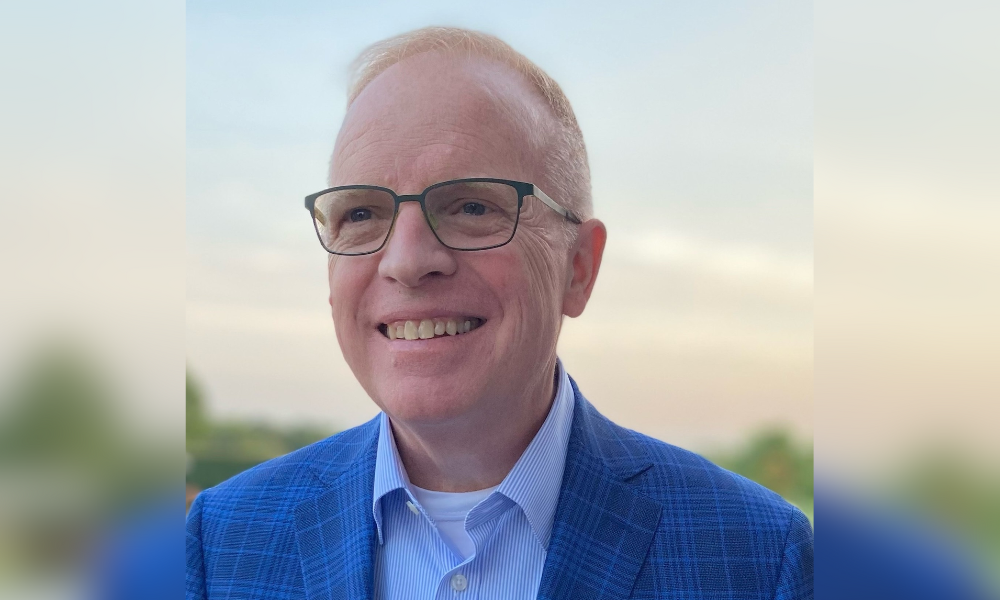

Patrick Mahoney, the CEO who led the Financial Planning Association through a tumultuous time in its history and the Covid pandemic, died last week at age 62.
Mahoney had been in treatment for cancer since a diagnosis in 2022, according to the FPA, which announced that its chief operating officer Dennis Moore is serving as interim CEO.
Mahoney, who himself started as CEO of FPA on an interim basis, quickly fell in love with the organization and its mission, he told InvestmentNews during a podcast in 2020.
He joined as FPA had seen its membership numbers slide for years and as its relationships with stakeholder organizations had become tenuous. FPA made budget adjustments during a difficult time, and Mahoney pledged to make the nonprofit relevant for financial planners across the different stages of their lives and careers.
“I’m all about the windshield, not the rearview mirror. So, I’m less concerned about what people may or may not have done before my arrival,” he told InvestmentNews at the time. “I’m more focused on what we’re going to do going forward.”
Although Mahoney came into the role thinking it would be temporary, he soon found it to be his professional calling, FPA president Paul Brahim said.
“He was an extraordinary man,” Brahim said. “This wasn’t just a job. This was a passion, a purpose – a why.”
Having genuine interactions with people was important to him, Brahim said.
“He developed great personal relationships with people. I can’t remember an exchange with him that didn’t begin with a sincere question: 'How are you doing?'” he said. “He was always deeply concerned for everyone’s personal welfare. Not all executives are that way.”
Mahoney came to FPA from the Institute of Electrical and Electronics Engineers, and before that he worked for S&P Global Ratings.
Separately, he held four patents related to court records filing. He was also a board member at Saint Joseph’s University Haub School of Business.
Mahoney, who was the first grandchild of Irish immigrants, at one point took an interest in genealogy. He traveled with his children within the US and in Ireland to find out more about his grandparents, according to an obituary posted on Legacy.
He and his wife Lesley settled in New Rochelle, New York in the early ’90s and had four children: Grace, Olivia, Madeleine, and Patrick Mahoney Jr. As a proud family man, he talked fondly of his children’s successes, and he occasionally brought Lesley to meetings, Brahim said.
He was also deeply spiritual, a trait that helped give him confidence in his professional life and a presence in personal interactions, though without a hint of preachiness, Brahim said. Mahoney was a lector and Eucharistic minister in the churches he attended.
He excelled at cutting through tension, something that was invaluable at an organization facing changes and challenges, Brahim said.
“He had an uncanny way of being in the midst of a very serious conversation and finding an element that could be humorous,” he said. “You could always count on him to find the right moment to do that.”
During his time leading FPA, he helped improve relationships with stakeholder groups, including the CFP Board, NAIFA, and NAPFA, Brahim said. One long-running project was building a strategic plan for FPA that debuted last year, he said.
“He truly wanted the organization to succeed well beyond his tenure.”

It's a showdown for the ages as wealth managers assess its impact on client portfolios.

CEO Ritik Malhotra is leveraging Savvy Wealth's Fidelity partnership in offers to Commonwealth advisors, alongside “Acquisition Relief Boxes” filled with cookies, brownies, and aspirin.

Fraud losses among Americans 60 and older surged 43 percent in 2024, led by investment schemes involving crypto and social manipulation.

The alternatives giant's new unit, led by a 17-year veteran, will tap into four areas worth an estimated $60 trillion.

"It's like a soap opera," says one senior industry executive.
RIAs face rising regulatory pressure in 2025. Forward-looking firms are responding with embedded technology, not more paperwork.
As inheritances are set to reshape client portfolios and next-gen heirs demand digital-first experiences, firms are retooling their wealth tech stacks and succession models in real time.
